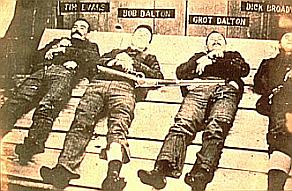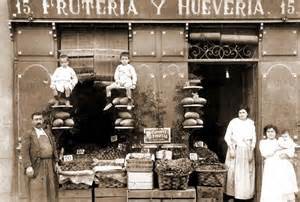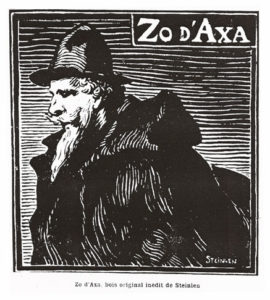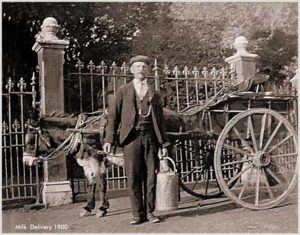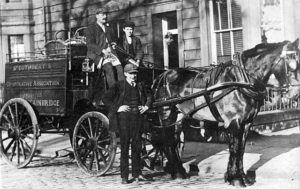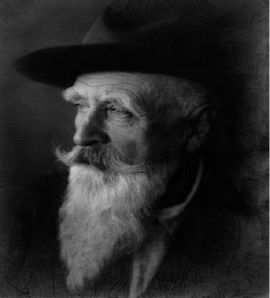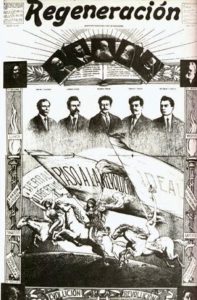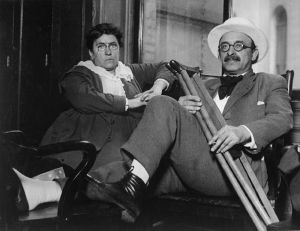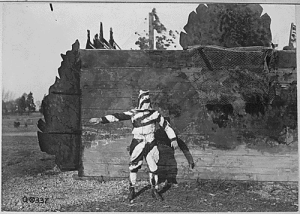
Ravachol
“Among the papers left by Ravachol is found the story of the violation of the grave of Mme la baronne de Rochetaillé. Someone who momentarily had it in his possession having sent it to us, we reproduce it in its entirety, respecting the spelling and grammar. The story is written with a cold and tranquil cynicism, which will inspire in readers the same horror we ourselves felt.”
Le Gaulois July 13, 1892
…being without work I set myself to making false money, a means not very lucratif and but dangerous, so I soon abbandonned it. I learnd that there was a baroness named de Rochetaillé who had bin buried not to long before. I thought she must have some jewls on her, so I resolved to break into the toomb.
One day I got myself a hooded lamp and a jimmy and I set out.
I left home at 9:00 at night. Along the way I went into a bakery with the intenshun of paying the owner with a two frank piece in exchange for a loaf of bred, but he reconized that it was false. I pretended not to no this and continued along my way. Further along I went into a café and asked for a drink to take with me and I managed to give the owner a two frank piece. Further along I went again to a baker, I asked for a small loaf, I gave him a two frank piece and went on my way.
I got to the cematary at 11:00. Before going in I ate my bred and drank some wine, and climb the wall and head for the grave that I attentively inspect.
So using my jimmy I lifted the toombstone and I entered the toomb; seeing the name I was looking for on a marble stone I set myself to unsealing it with the jimmy. So that the stone shouldn’t fall on me I went into an empty compartment beside it. In falling the stone made a great noise and it broke into many pieces.
I quickly went back up to see if anyone was passing by. Not seeing anything suspishus, I went back down. I broke the 3 or 4 circles that closed the coffin. It wasn’t easy to do this.
Afterward I tried to fit my jimmy into a joint in the coffin and was able to do so. I bust open the planks by pressing on them, but there was a layer of led wrapped around the corpse. I banged on it with the point of the jimmy and managed to make an opening big enough to take out the arm to see her left hand. I had to take out several small pakages which I didn’t know what they contained. Once her left arm was out I pulled it too me and looked attentively at the fingers which was covered with mold. I didn’t find what I was looking for. I looked at the throat and didn’t see nothing there neither, and since my lamp didn’t light anymore since it had no more oil, in order to finish my operation I set on fire a wreath of flowers I’d found in a chapel over the fault. It spred a thick smoke while I was burning which caused me to go back up quickly if I didn’t want to asfixiate.
When I opened the coffin I had only one fear and that was that a large escaping of asfixiating gas would take place, but because I was in a hurry do to a certain need I didn’t hesitate because its preferable to die risking yourself than succumming to hunger.
Once I climbed up I put the toombstone back in place and I started back home but on leaving I saw about a hundred meters away two men coming across the fields who seemed to want to cut me off in order to stop me.
I put my hand on my revolver and slowed down a little. They passed in front of me not saying anything. Later on on the rue da la monta I meet a man who at about a hundred meters who asked the way to the Chateau Creux. I didn’t clearly understand him and he came up to me and repeated the question. I told him to follow me, that I passed write by it. He said to me that I was wearing a fake beard on my face which made me smile since I thought I had nothing to fear from this man who was all alone.
This happened on the rue de la monta. Coming up on the station I showed him the way and continued on mine. I went back home.
Notes: We have three autobiographical texts by Ravachol dating from his time in prison just prior to his execution July 11, 1892. The first was the text dictated to the police, “My Principles”; the second is a longer fragment about his youth, political development and criminal life; and the last an account of his most notorious crime, his attempt at grave-robbing. Supposedly written in his own hand, complete with grammatical and spelling mistakes, it appeared in a Parisian paper two days after Ravachol’s death. Source: Ravachol. Un saint nous est né, edited by Philippe Oriol. L’équipement de la pensée, Paris. 1992;
Translated: for marxists.org by Mitch Abidor; CopyLeft: Creative Commons (Attribute & ShareAlike) marxists.org 2006.
Source: Un saint nous est né, edited by Philippe Oriol.
